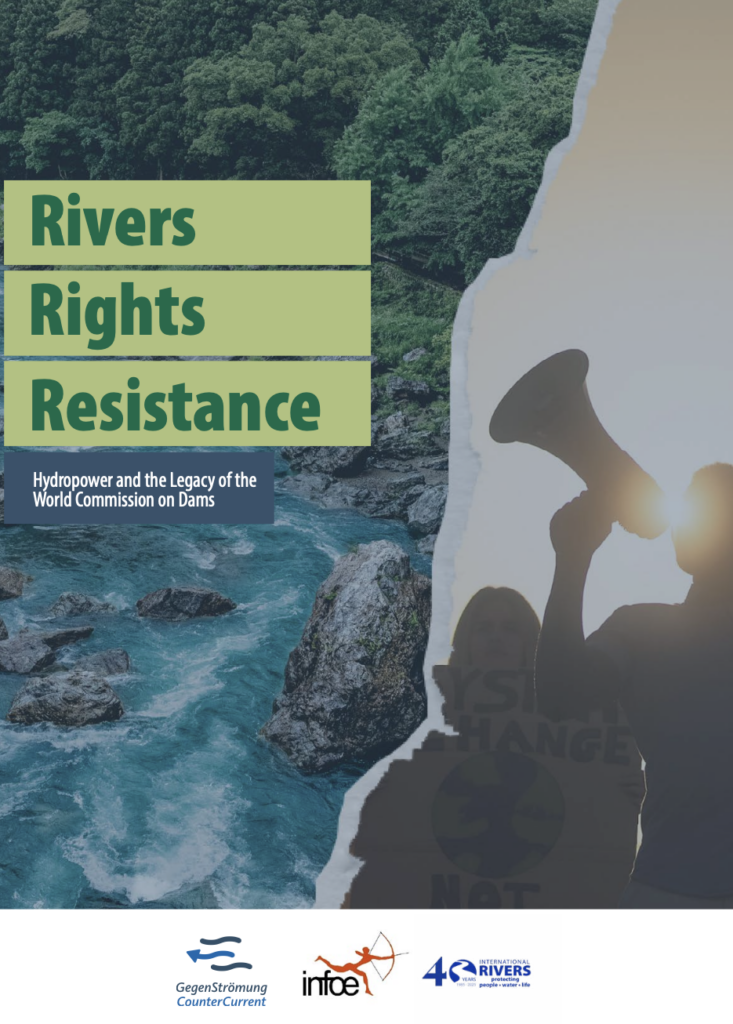
Released in partnership with GegenStrömung, Rivers, Rights, Resistance is a compendium of stories about the legacy of the World Commission on Dams. In response to fierce grassroots opposition to large dams, particularly in the Global South, the World Commission on Dams was established in 1998 to develop recommendations on dams. Its mandate was to review the “development effectiveness” of dams and to develop standards and guidelines for future projects.
After bringing together a diverse group of stakeholders to explore the repercussions of large-scale dams, the World Commission on Dams published its findings in 2000. On the 25th anniversary of the report, and as experts gather in Bonn for the annual Climate Change conference, we’re reflecting on the findings of the report, its implications for future dam development, and what that means for riverine communities. Twenty-five years after its publication, the World Commission on Dams framework remains the most significant benchmark in international dam building and the de facto standard against which policies are compared.
As the World Bank returns to financing megadams and governments worldwide falsely tout hydropower as a climate solution, Rivers, Rights, Resistance highlights lessons learned from the World Commission on Dams. It includes stories on how frontline communities have responded to challenges imposed by dams and led the global resistance against destructive hydropower; the ecological consequences of large-scale dams; suggestions for sustainable, rights-based approaches to generating electricity; and more.
